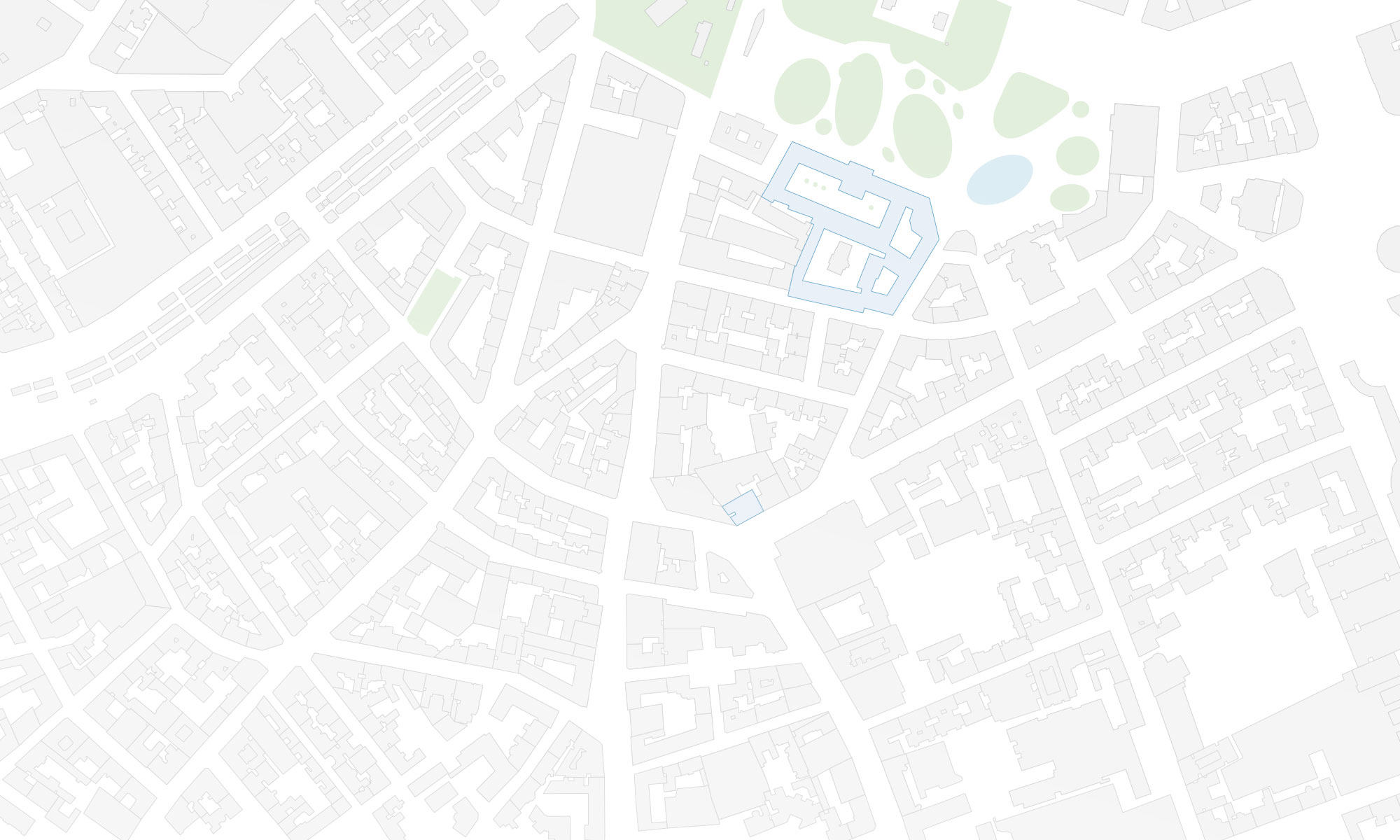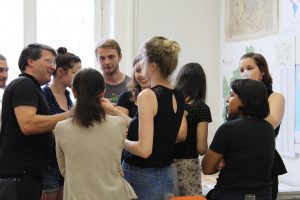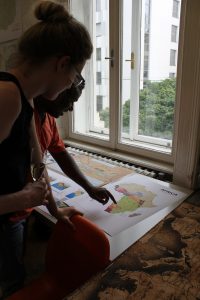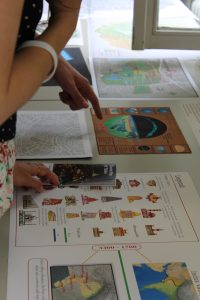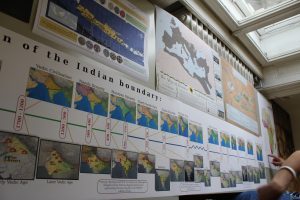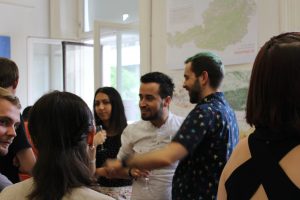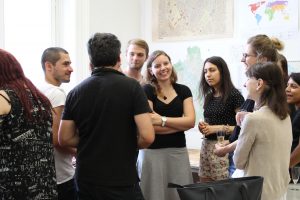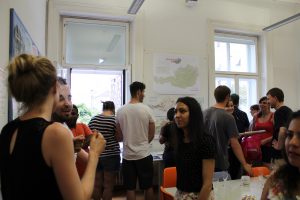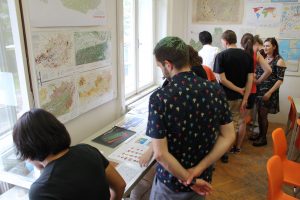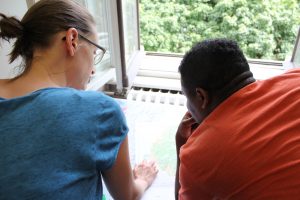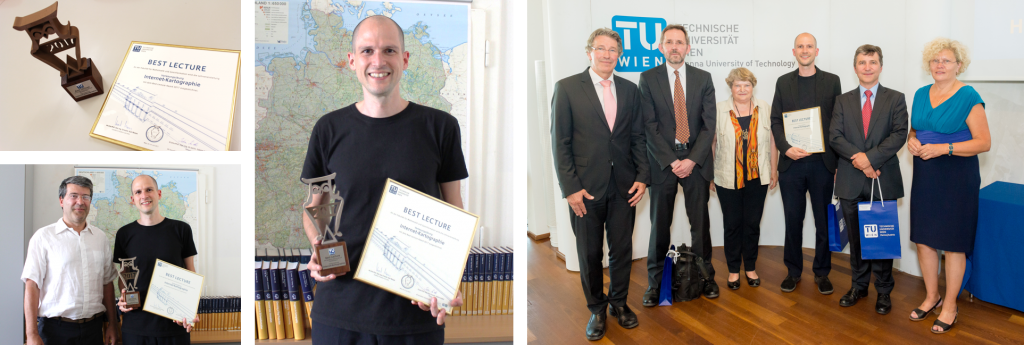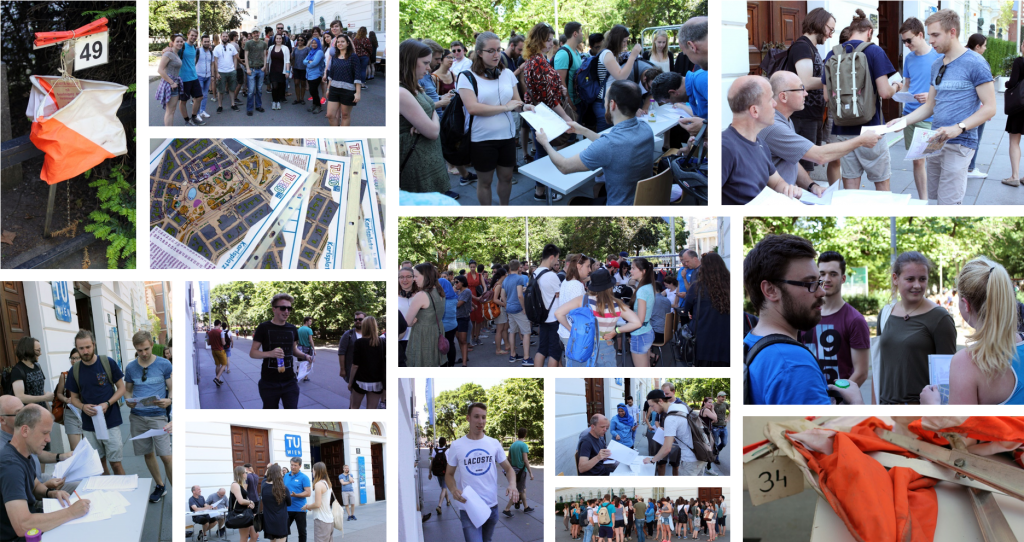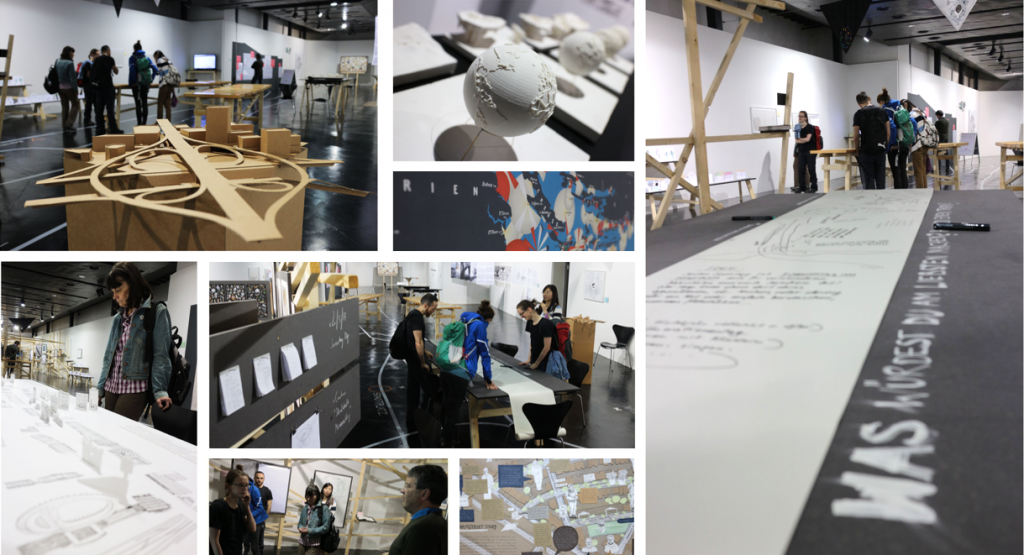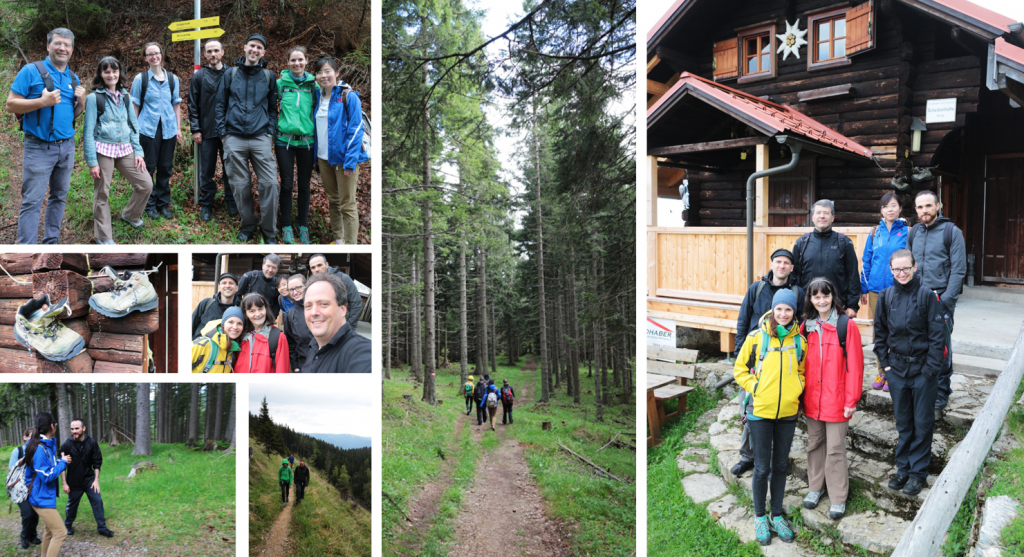We are happy to announce a CartoTalk on Tuesday, 13 June 2017, by Alenka Poplin from Iowa State University.
Abstract: The main goal of this presentation is to explore the concept of place and the emotions felt at specific places. The places chosen for this research are power places (Kraftorte in German language), which can be defined as places in which people recharge and feel at peace, places that evoke positive feelings. Where in the city are such places? How do people/citizens describe these places? Which emotions do they experience at these places, which words do they use to describe the emotions felt at these places, and how can these emotions be represented on a map?
Our research is based on a set of mapping experiments conducted in the cities of Hamburg, Germany and Ames, Iowa. We asked people to map their power places, describe their characteristics and the feelings they feel at these places. In Hamburg we collected 191 power places, the descriptions of their physical characteristics and emotions associated with these places. We compare this European experience with data collected in a university town in the North America. The experiments were conducted with paper maps and an online volunteered geographic information (VGI) platform Maptionnaire.
The presentation addresses the issues of uncertainty; uncertainty of the location, shape of the places, and expressed emotions. It also discusses research challenges of mapping places and emotions, the need for a place-based GIS and mapping other intangible landscapes.
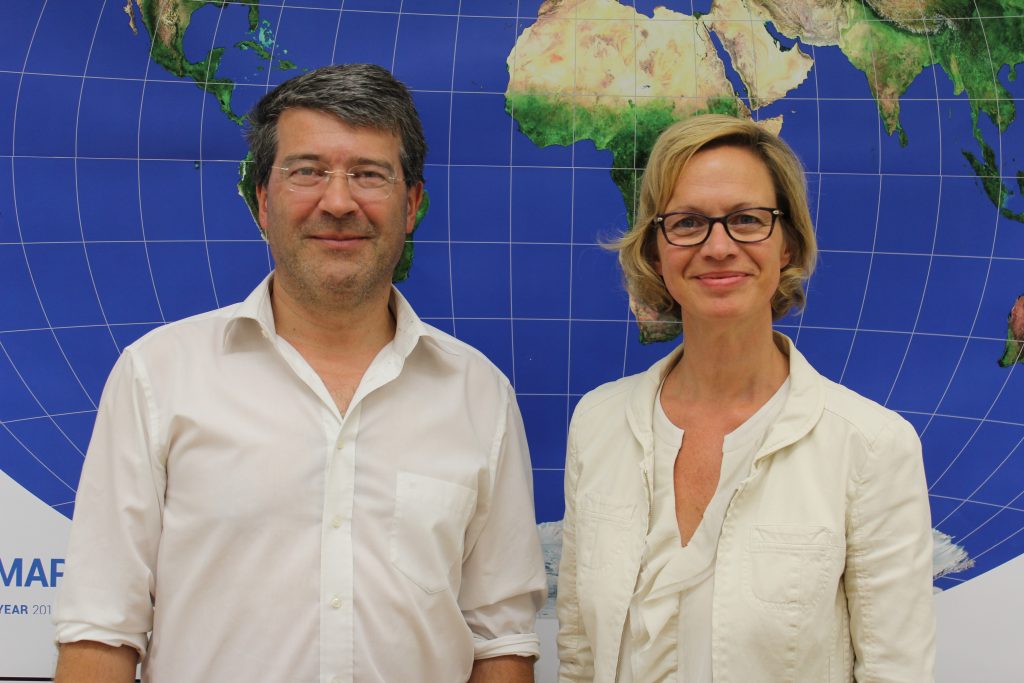
Alenka Poplin is Assistant Professor at Iowa State University at the Department of Community and Regional Planning. Alenka studied Surveying and Spatial Planning at Technical University of Ljubljana before she finished her PhD in Geoinformation Science at the Institute for Geoinformation and Cartography at Vienna University of Technology. Her research focuses on GeoGames for urban planning, serious games for civic engagement, user experience with interactive maps, GeoVisualization, Smart and Happy Cites, and Smart Communities & Big Data.
Tuesday, 13 June 2017, 16:30
Research Group Cartography
Seminar room 126
